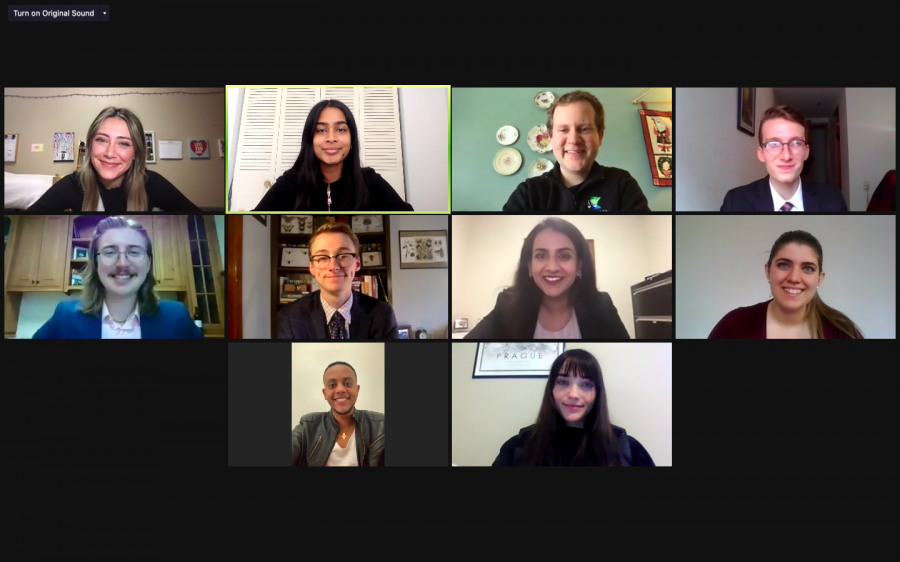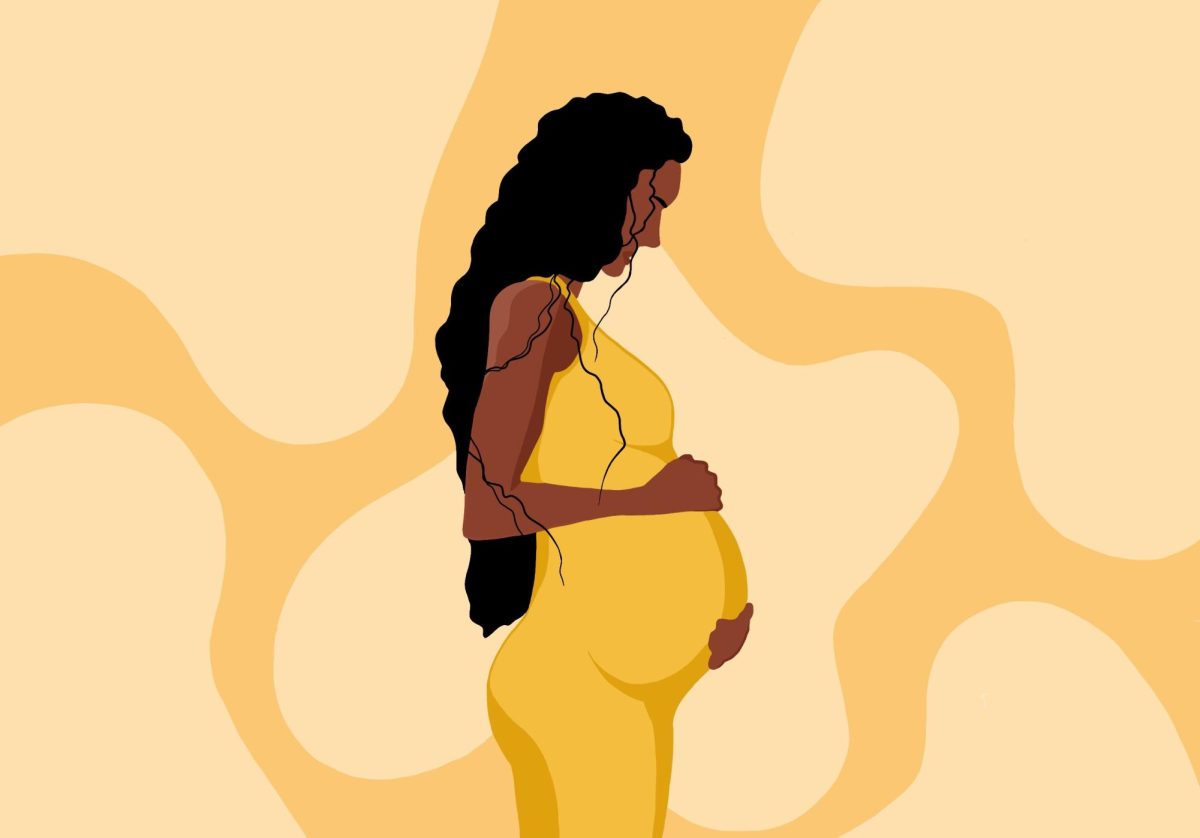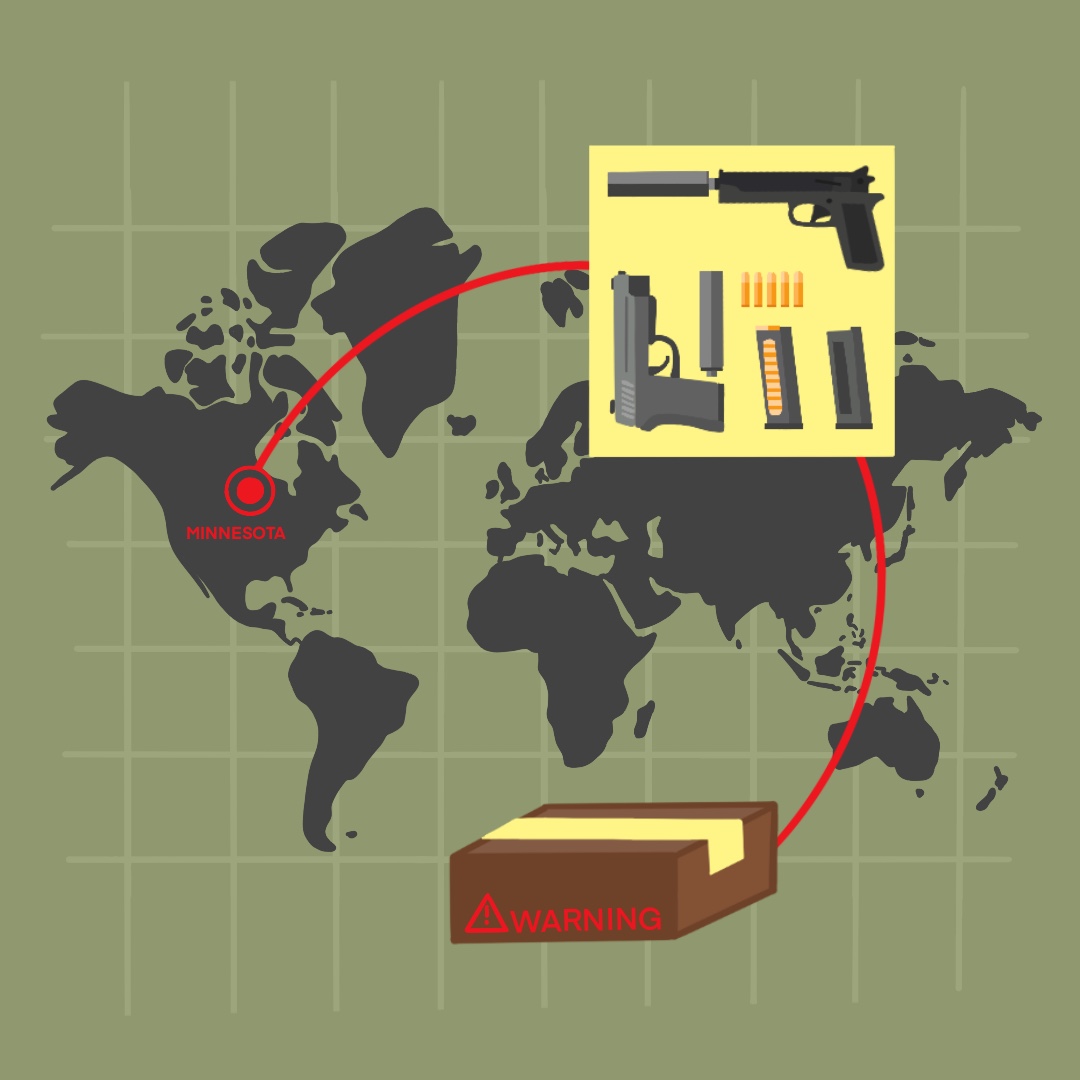The University of Minnesota Undergraduate Mock Trial Association placed 15th out of more than 600 teams at a national competition earlier this month.
Mock trial is a student group that teaches legal and public speaking skills through practice cases and court proceedings. The team travels the country competing against other colleges at tournaments.
“We have a very straightforward, Midwesterner style, and I think that’s something a lot of judges like. We have very believable, very credible witnesses,” Harshita Kalidindi, a fourth-year University student and mock trial member, said.
At the national competition earlier this month, each of the 48 qualifying teams argued both sides of a specific case. The University’s team received the case three weeks before nationals and immediately began preparing arguments for both the defense and prosecution.
“Nationals is kind of a rat race to see who can come up with the best theory the fastest. You need to get an understanding of the case very quickly. It was intense,” Kendall Nowlan, a third-year University student and mock trial member, said.
This year, the case at the national tournament involved a dispute between a landlord and tenant over a bedbug infestation.
“I really enjoyed the national case. It related a lot more with everyone — it seems everyone has some sort of a bad experience with bed bugs,” Grace Hertzog, a first-year University student and mock trial member, said.
Colin Abress, the mock trial association president and third-year University student, won an All-American Award, a prize given to both the top ten witnesses and attorneys at nationals, for his work as an expert witness as an insect expert.
Beginning in the fall semester, the mock trial team competed at invitationals, regionals and opening round championships tournaments before attending nationals.
The University’s mock trial team qualified for nationals last year as well. However, the team could not compete when the season was canceled last March because of the COVID-19 pandemic.
This year’s mock trial team also lost members as a result of the pandemic. The team that competed at the national tournament consisted of nine students.
Abress said he attributes the team’s success to the coaches, talented students and lots of preparation. The team’s practices leading up to nationals consisted of hours on Zoom almost every day, whether deciding how to play a witness or creating a defense.
While competing via Zoom allowed the team to attend more invitational tournaments without added costs, Abress said the experience lacked the same sense of community.
“I think the social element was really different this year. We didn’t get to be in person with our team and travel and stay at hotels together, which is a lot of the bonding of mock trial,” Kalidindi said. “But there’s still some of that bonding that came through with being on a phone call with them for like, ten hours a week.”
Hertzog said being a first-year student during the pandemic has made it more difficult to compete and connect with her team. She said it was hard to seem engaged while sitting in a chair on Zoom because she typically speaks with her body during mock trials.
Nowlan said he feels bad for the students who joined during the pandemic and have not gotten the chance to experience the bonding and relationship-building that comes with traveling across the country to compete. “I’m really looking forward to being in person,” he said.
Most of those on the mock trial team came to college with some prior experience from high school or with law school in mind. Kalidindi said she joined mock trial thinking it would just be an extracurricular activity, but the experience has convinced her she wants to attend law school.
Students planning a career in the legal field are not the only ones on the mock trial team. Nowlan joined last year after he had the opportunity to travel with and watch his brother compete as a part of the University’s mock trial team.
“I don’t plan on going to law school. I don’t really need an understanding of the rules of evidence,” Nowlan said. “But I use [mock trial] as a creative outlet where I can go up and improve my public speaking skills by critical thinking, and I get to act and pretend I’m some character.”













